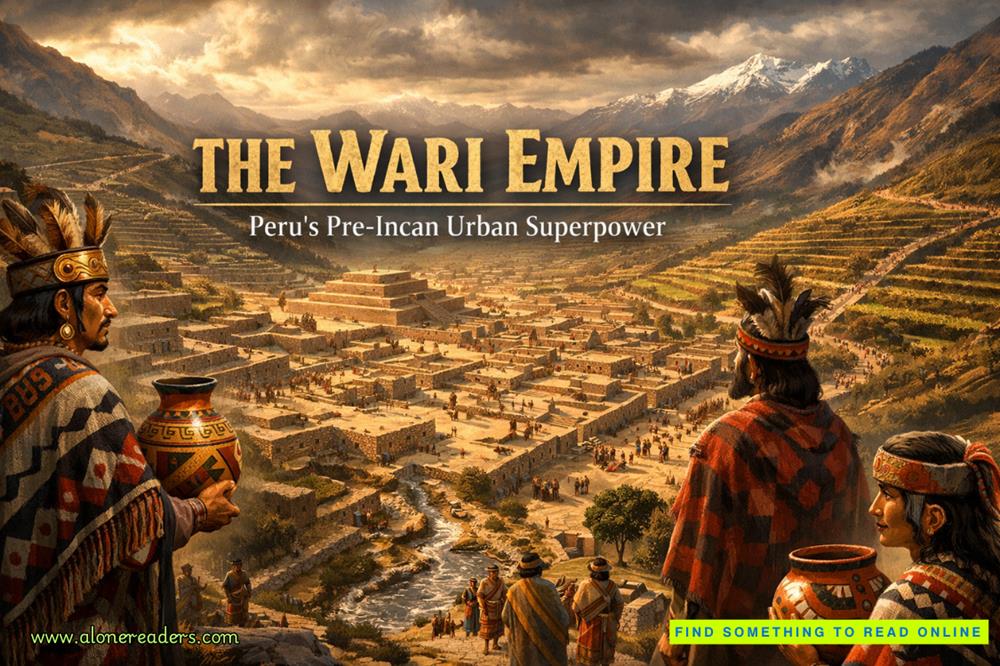Chapter Two
Catarina
Ihear the flick of a lighter and sit up, the scent of cigarettes filling my nose. A dull thrum aches in my cheek from the compression of laying my head against the window. I lift my head and attempt to straighten my neck, but it only causes the pain to stretch alongside the muscle. The man driving hears me moving, and we lock eyes in the rearview mirror. We stare at each other for a minute before I break the silence. “Shouldn’t you be watching the road?”
He doesn’t bother replying before tearing his eyes away from mine, I turn and watch the trees as they pass by my window. Their various shades of gold and the Kudzu-covered hills swirl together, reminding me ofWhat Dreams May Comewhere everything—the flowers, the trees—are brushed into existence by paint strokes. The leaves have started shifting, and if I was in a better situation I’d be able to appreciate their quickly changing colors. But I’m not.
I peer at the radio, checking the time that’s gone by—nearly two hours. When I open my mouth to yawn, the telltale sign of higher elevation sounds in my ears. The van slows right beforewe take a sharp turn onto a gravel road, the sudden shift causing my seatbelt to lock, its hard polyester digging into my neck. I hiss, mumbling under my breath, “Jesus christ.” Rocks begin hitting the undercarriage, creating the metaltingingnoise I’m accustomed to. We approach a run-down, wooden barn, and the driver stops for a few ducks standing in the road.
“So, you’re not a complete asshole to all beings. Just me.” His head whips back to my direction, and I raise my hands in a fake sense of defense. “My bad.” I let out a low huff before turning my gaze back toward the trees.
The ducks stare at him as he lays on the horn. It takes them a few seconds before they decide to move along. As I watch them, I’m reminded of the time Dad compared me to the neighbors’ ducks we were tending to while they were on vacation.
“They’re refusing to go into their pen. What should I do?” I huff, kicking the dirt and crossing my arms at the stubborn little creatures who scatter every time I get too close.
Dad pours food into their horse’s feed bowl before turning to me. “You have to guide them, not chase after them like a bull.” I rub my temples. I’ve been on my feet all day at work and just want to go home, shower, and rest before my Sunday shift tomorrow, knowing he and Mom will throw a fit about me missing church again.
Moving slowly, I try it his way, making sure to give them plenty of space. The ducks take that as an invitation to bolt in every direction except the one I need them to go. The largest duck, Eugene, flaps straight in my direction while the smaller yellow one runs in circles around me. “What else am I supposed to do? Beg them?”
Dad forces a laugh. “What’d you expect? They’re independent creatures. You tell them to do one thing, they’ll do the opposite just to prove they can.” He gives me a pointed look. “Sound familiar?”
I look ahead and spot what I assume is our destination. A massive brick building appears in the distance. While it doesn’t look like anything special, it does have a wraparound porch that hugs its frame. As we drive closer, I see a few shed-like structures scattered along both sides. One has a couple of rocking chairs swaying slightly in the breeze. Another has a faded green tool shed sitting right beside the front door.
I point in their direction. “What are those?”
His eyes cut to mine in the mirror, an expression on his face like he’s deciding whether I’m just stupid or annoying. The tone in his voice is sharp when he answers, “Houses.”
“Alright then,” I say under my breath. We come to a stop, and he turns the ignition off, unbuckles, and opens the door. My fingers search for the door handle that isn’t there, reminding me there aren’t any interior handles back here. Lovely.
He walks around to my door and opens it, gesturing me out. I slide down and try to grab my footing on the slick gravel. He goes to walk away but stops when I ask, “What about my bags?”
His head turns, looking back at me over his shoulder. “Someone will bring them to you later.”
I want to demand my things, but instead, I remind myself to be smart and choose my battles wisely. It is painfully obvious he doesn’t have any issue with shutting me up, and I think back to this morning, about my fingers frantically prying his fingers from my arm before getting away. The sudden burst of adrenaline kicked in once I started sprinting across our driveway. I ran as fast as my legs allowed but, in the end, I didn’t get far at all.
If I could’ve at least gotten past the tiny orange flag that separates our property line from the states, I would’ve had an advantage. No one knows those woods better than I do. I’ve spent my entire life learning them, so I knew I could lose him. There’s something about the mountains of North Carolina andtheir way of making you feel like you’re home, even if you’re not. The temperature is always just right, probably because they’re technically considered a rainforest.
The mountains have been the only constant providing me solace for years. On days I was sad, I’d nestle against a tree, calming myself with the feel of the moss under my fingers. I’d lose myself in a book—more times than not, a horror book I had to keep hidden.
If I was angry, I’d hide out near the creek and see if I could spot a salamander. It was rare that I did, but it gave my brain something to focus on instead of my feelings—the feelings I wasn’t allowed to have because, according to Dad, I’m too young to know what true anger feels like. As if rage checks your birthday before sinking in. Emotions don’t come with age restrictions, kids feel the sting too. They’re just not allowed to name it. I never understood the reasoning behind his statement, and I suppose now I never will.
I take in a deep breath before following my driver. He keeps glancing over his shoulder as we walk up the stairs to the wooden doors, and I am starting to feel my heartbeat in my temples from the lack of oxygen. Once in front of the doorway, he turns the cast iron doorknob, and I exhale before walking inside. I can tell the door is solid when he holds it open for me because the second I follow behind him, he removes his hold and the door slams shut with a loud bang. The sound bounces off the walls, where patches of exposed brick peek through, before rising to the ceiling that looks more like a giant window than a roof. I look around, taking in my surroundings.
I run my hands up and down my arms trying to create some form of warmth, the sudden chill in the air causing goosebumps to form on my exposed skin. I catch a faint whiff of mold every few steps, its musk settling heavy in my lungs. The giant entryway is off-putting and reminds me of the sanctuary usedwhen I was shipped away to youth summer camp. Though boys and girls were kept separate, we still had to cover our one-piece swimsuits with gauchos and T-shirts, even in the water. The extra weight was a bitch in the Tennessee heat. Not to mention the way the fabric stuck to our body, like it was mimicking a cage.
Unfortunately, I’m no stranger to feeling trapped. I’d even dare to say this gives me worse vibes than Crossroads, the church Dad chose for our family. I remember walking in for the first time and feeling like something was off—but to be honest, all churches feel off. You’re walking into a place that says come as you are, but once you take a step onto the blood-colored carpet, they hand you a program listing all the things you need to change.
I remember staring at Dad, choking on the words.“Was there ever a version of me you could’ve loved without condition?”I felt the sting of the tears threatening to fall before I swallowed them down.“Is thinking for myself really the worst thing I can do? How much of myself do I have to kill before you’ll see me as someone worth loving?”I already knew the answer, believing differently was betrayal. Eventually, I stopped crying, and they stopped looking at me.
My eyes continue scanning the ceiling, slowly making their way down the walls and stopping when I notice someone. Someone who has clearly noticed me, too. I squint my eyes, and from what I can see, he looks taller than me. But that isn’t anything new when I’m five-four on a good day. Plus, I’m terrible with measurements, and he’s on the second floor, so who knows. The fabric from his shirt strains against his broad shoulders, and his fingers are gripped around the banister. His stare pins me in place. Dark, tousled hair frames his face, giving him a just-rolled-out-of-bed look. The sleeves from his white button-up are rolled up to his elbows, just enough that pale skinbarely shows from underneath. I look him up and down as best I can before our eyes lock. My body stiffens before breaking away. Unfortunately, this allows me to meet the stare of the man who’s responsible for my being here—Father Fenris.
My driver nods to him before walking away, and I see a large figure out of my peripheral but don’t take my eyes off Fenris long enough to see who it is. It looks like he’s gliding in my direction, his long legs closing the distance between us. Straightening my shoulders, I ball my fists, sticky sweat already coating my palms. I narrow my eyes on his and lower my stare before a slow smile begins creeping across his face. His skin is taut over bone like he’s forgotten how to show emotion. When he steps into my space and places his hand on my lower back, he gives me a slight push, guiding me toward the hall to my left.
I hate him. I hate how he manipulated my parents, and I hate how easily they fell for it. They’ve become so easy to sway over the last decade, due to the current climate of society. Maybe it started with fear—the fear of change or being wrong. Loving me became harder once he convinced them I was broken. I watched them become so desperate to feel righteous in a world they’re being told is falling apart. They needed someone to blame, so when he gave them what they were looking for, they didn’t hesitate.
He follows close behind, forcing me through the dim corridor. Both of his hands slide to my shoulders before giving them a harsh squeeze, bringing me to a stop. The polished mahogany gleams, and even in the low light, I see my distorted reflection. He opens the door and studies me for a moment before clapping his hands together. “This is your new home, Catarina. Welcome to the Fellowship of the Collective.” The name scratches something in the back of my mind, I know I’ve heard it before—but I can’t remember where.
Chapter Three















